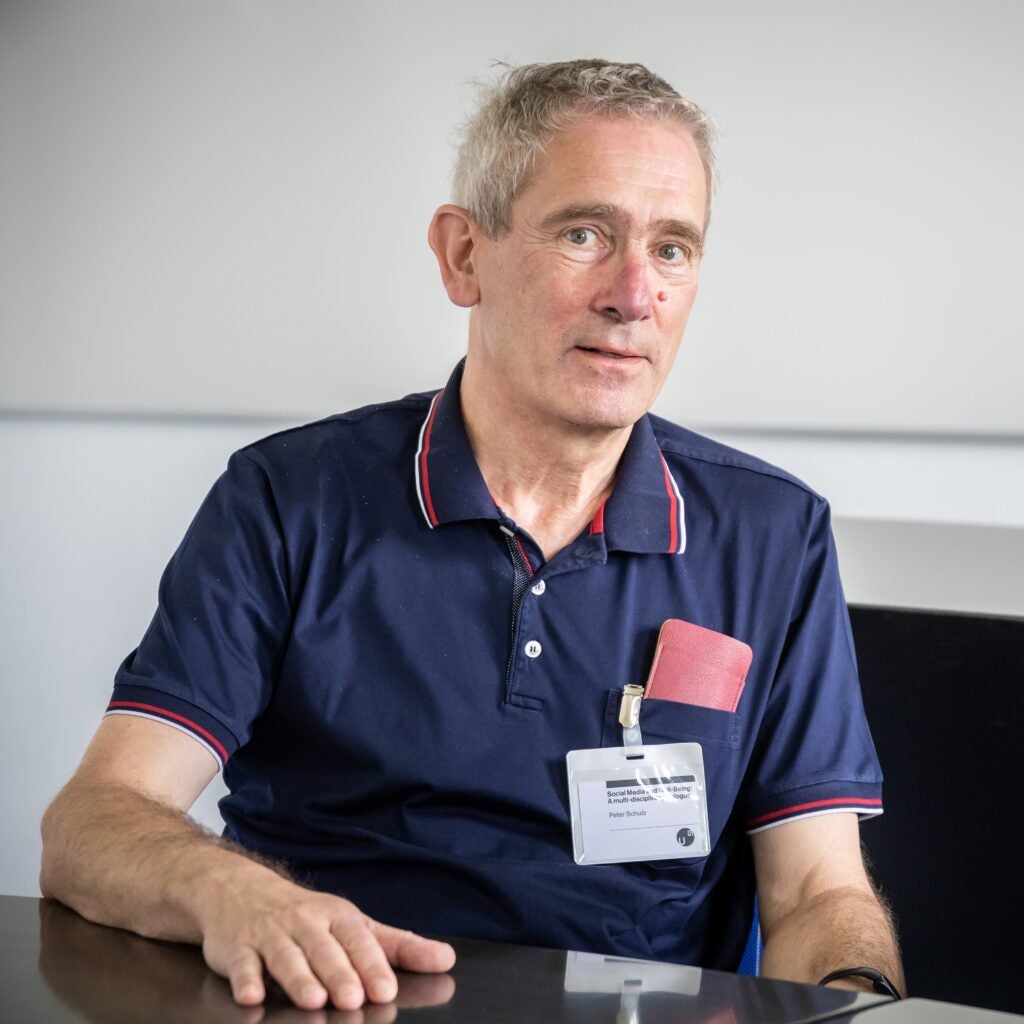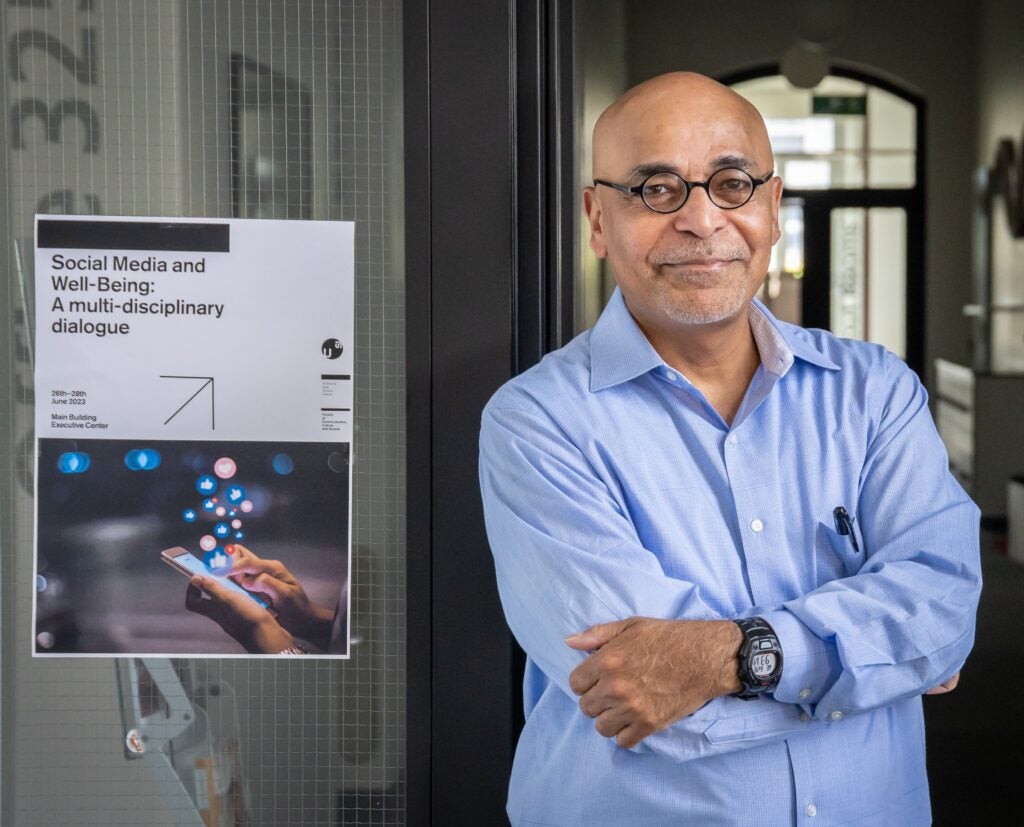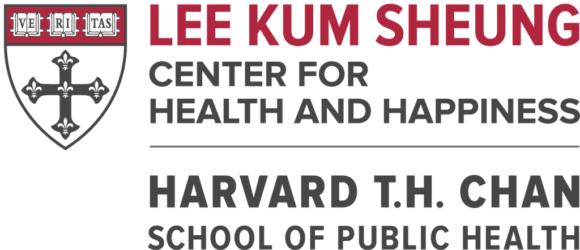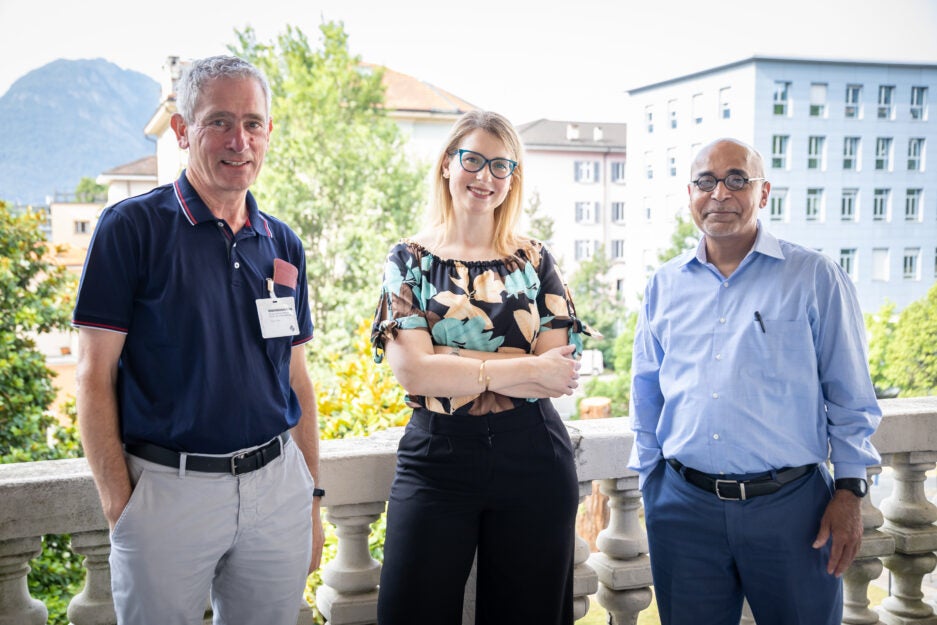Social media is an integral part of our lives, and the question of how this affects us is a pressing issue. A 2022 study conducted by the Pew Research Center found that about three-quarters of teens visit YouTube at least daily, a majority of teens (58%) visit TikTok daily, and half say the same for Snapchat (51%) and Instagram (50%). Across these platforms, 35% of all U.S. teens say they are on at least one of them almost constantly.
Today, the academic world is paying a lot of attention to the cultural, contextual, and socio-economic factors linked to the use of social media. The ongoing discussion involves the suitability of different research designs and the evaluation of how the results of scientific studies can be translated into practice.
These topics were discussed in Lugano, Switzerland from June 26th to 28th, 2023, at “Social Media and Well-Being: A multi-disciplinary dialogue”, a workshop which brought together scholars from different disciplines and cultural backgrounds to discuss the complex nature of social media use and its influence on well-being. The event was organized by the Faculty of Communication of the Università della Svizzera italiana (USI), in collaboration with the Amsterdam School of Communication Research and the Lee Kum Sheung Center for Health and Happiness. This workshop was a continuation in a European context of a previous Social Media Workshop held in April 2022 by the Center for Health and Happiness at the Harvard Faculty Club in Cambridge.


Dr. Peter Schulz (pictured right), professor of Health Communication at the Faculty of Communication, Culture and Society at USI, said that in the United Kingdom, around 73% of adolescents described social media use as a distraction from schoolwork, with over half of them indicating that such platforms hinder social interactions. In various other parts of Europe, around 63% of adults believe that social media takes up too much time.
With the increased awareness of problematic social media usage behaviors, strategies to manage social media usage are growing, and experts are calling for people to reduce their social media time. However, a full understanding of how, when, and why “disconnection” from social media really works is still lacking.
A recent review of twelve studies, stated Dr. Schulz, has shed light on this question, revealing diverse results of disconnection interventions on well-being: positive, but also negative and inconclusive. Various explanations have been formulated for these conflicting results. One is that it is not always clear what exactly is meant by “disconnection” and “detox”: a total abstinence, which also includes sending text messages or receiving calls (a drastic choice, which would be difficult to implement, even for practical reasons)? Or just refraining from using social media?

Center Director Dr. K. “Vish” Viswanath (pictured left) asserted that “Statements and even policies that broadly portray the role of social media in everyday life miss the many nuances that exist… This happens because much of the attention paid to the role of social media has focused on the possible negative effects of their use, particularly regarding adolescents and children.” However, Dr. Viswanath’s research and the work of other scholars show that social media can also have a positive effect on people’s well-being. For example, Dr. Viswanath explained, “people who are from ethnic, racial, or sexual orientation minorities find social media useful for connecting with like-minded people. In this case, social media provides access to communities that people may not find in their geographical area. Likewise, immigrants or migrants can connect with family and friends through social media, making it easier to maintain their relationships. In short, we are dealing with another type of social capital, the so-called ‘connection social capital.’”
Social media use isn’t restricted to young people. Although most studies on the effects of social media use have been conducted on students, there is also evidence of an increase in the digital involvement of the elderly (people over 65) and on the consequent improvement of their well-being. “Although social media usage rates among older adults are still lower than among younger age groups, their use of these platforms is steadily increasing,” explained Dr. Schulz. In fact, a representative study conducted in Switzerland revealed that, although the percentage of over 65s who use social media is still low (29%), 81% of them use these networks to speak with others, obtaining information or emotional encouragement regardless of geographical location and time. The elderly, continued Dr. Schulz, appreciate social media because it represents an easy way to initiate contact and maintain relationships with family and friends. A study conducted in the US also showed that increased frequency of social media use promotes an increase in the frequency of social contact and engagement, resulting in less isolation, which in turn contributes to lower levels of loneliness.

Studies have also come from Ticino, Switzerland, which underline how the use of social media can have negative effects on some people, but also positive effects on others. In particular, the research of Center Postdoctoral Fellow Dr. Laura Marciano (pictured right) underlines how we can also show positive associations when specific online activities – like talking with someone when feeling lonely or being appreciated and part of a group – are investigated. These findings come from Dr. Marciano’s HappyB Project, which used a sample of more than 1,500 adolescents from Ticino to study the link between the use of smartphones, social media, and happiness, showing that the effect of social media is never one-way.
This article was translated from the original Italian article written by Valeria Camia, published in Ticino Scienza, a project of the IBSA Foundation for Scientific Research. The text was further adapted by Lee Kum Sheung Center for Health and Happiness Communications Coordinator Ayla Fudala. Photographs were taken by Chiara Micci.


You must be logged in to post a comment.